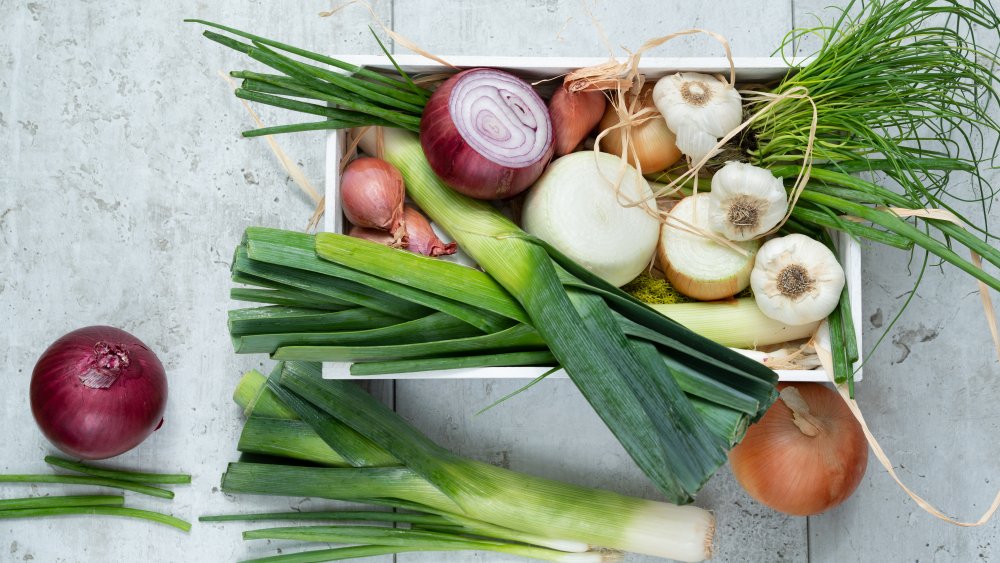The Ingredient Recommended By The World's Oldest Cookbooks
Cookbooks have been around for centuries. The oldest ones are housed in Yale's library and are literally etched in stone. These culinary tablets date back to ca. 1750 BC and contain some of the oldest recipes from Mesopotamia. What is truly interesting about these two tablets is that they list ingredients – mostly for meat and vegetable stews – but no measurements or amount of time needed to cook these meals. So whoever was preparing these recipes clearly knew what he or she was doing or there was a lot of room for creative assumption. Written in cuneiform, these tablets offer incredible insight into how dishes were prepared; what people from this time period enjoyed eating; and how they flavored their foods.
Per a BBC article, French gourmet cook, Jen Bottero helped translate these culinary tablets and in so doing noted that Mesopotamians were in love with one particular family of bulbs. In fact, it's probably fair to say you should always have some of these bulbous vegetables on hand in your own kitchen to enhance the taste of your own culinary musings. Bottero said of the preparers of the recipes contained on the tablets, "They seem obsessed with every member of the onion family!" And while onions might top that list, recipes also mentioned leeks, shallots, and garlic. Why onions?
Onions and members of this bulbous family were flavor enhancers
It shouldn't come as too much of a surprise that onions would play such a central role in cooking recipes of yore. Food historian Laura Kelley told the BBC, "We think that based on genetic analysis onions came from central Asia, so they are already far afield by the time the Mesopotamians are using them." Fast-forward to the present day and we know that onions can enhance the flavor of just about any dish. In fact, they often serve as the flavor foundation of many a recipe (via Chicago Tribune), and for good reason. Roughly 170 countries around the globe produce and harvest onions (via World Atlas). They're quite abundant, which makes them an easy go-to and add that burst of umami when cooking up our favorite foods.
The Kitchn notes that onions and its aromatic family of garlic and leeks can create enough of a punch that you can skip the salt in a recipe, simply by upping the amount of these bulbous vegetables you use. And Victoria Jarzabkowski, a nutritionist at the University of Texas at Austin, told Live Science, "I like to recommend eating onions because they add flavor without salt and sugar." So, as you are looking for items to stock your pantry with, don't forget to the onions.

